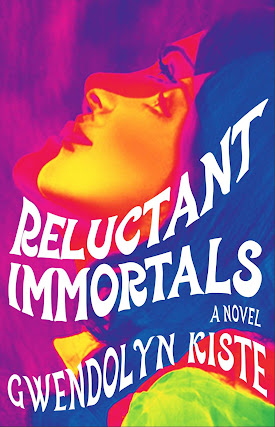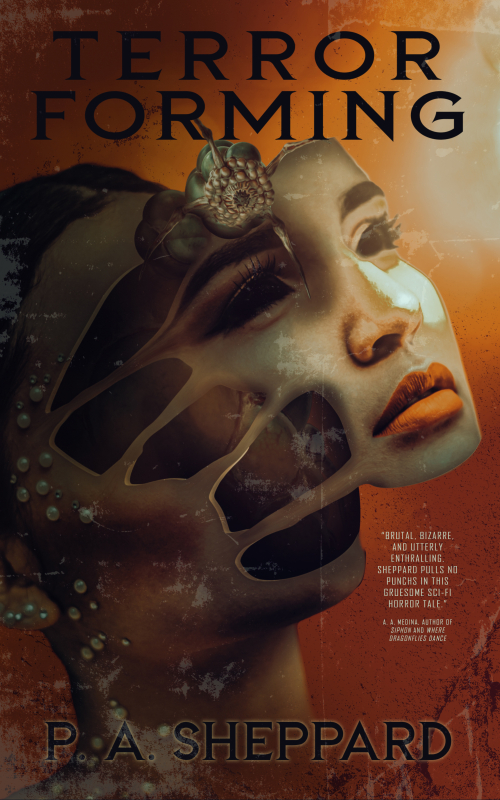Interview with Dan Coxon, author of Only the Broken Remain
Today I’m chatting with Dan Coxon, an author I
greatly admire. He’s been a part of the British horror/strange fiction scene
for many years. He’s been at the helm of the legendary Tales From The Shadow Booth anthologies
as well as the multi award winning anthology, This Dreaming Isle, and now he
has his debut short fiction collection Only The Broken Remain coming out with
Black Shuck Books
1)
Tell us a bit about yourself
I’m a writer and editor based on the outskirts of
London, probably best known for editing the anthology This Dreaming Isle
(shortlisted for the Shirley Jackson Awards and the British Fantasy Awards). I’m
also editor for Unsung Stories (Best Independent Press, British Fantasy Awards
2018 & 2019), and a freelance editor at Momus Editorial. My short fiction
has appeared in Black Static, Nightscript and Not One of Us,
and the anthologies Nox Pareidolia and Humanagerie, among many
other places. Earlier this year I had a mini-collection, Green Fingers,
published by Black Shuck Books, and they’ve just published my first full-length
collection, Only The Broken Remain. Oh, and I bake a mean loaf of bread.
1)
Tell us about your new story collection,
Only The Broken Remain.
Only The Broken Remain
is a collection of stories about people who are marginalised or excluded in
some way, sometimes through no fault of their own, sometimes as a consequence
of their actions. I’m really interested in these types of characters: people who
have been worn down by life and cast adrift, but somehow find the strength to
carry on regardless. There’s a quiet heroism in not giving in. So you’ll find
stories about a disenfranchised immigrant worker who forms a pact with the
local foxes, a social misfit who finds his ideal job failing in front of a
circus audience, an accountant who has embezzled funds and loses herself –
literally – while on the run in Australia… I’m sure you get the idea. Some are
previously published, while a handful are new and original to this book.
1)
What is it that drew you to British folk
horror?
Part of what I do is folk horror, for sure, but I’m
generally interested in weird fiction and the uncanny. I suspect the success of
This Dreaming Isle will see me tagged as ‘the British folk-horror guy’
for a while, but that was really something that grew out of a specific
situation, at a specific time, and I think flogging it for years to come would
be a mistake. When I first started work on that anthology, we were in the midst
of the Brexit vote, and nobody knew what the future held for Britain, whereas
now… well, actually we still haven’t a clue, have we. But there was a sense in
which folk horror was examining and reframing the ways in which we view the
past, and I really liked that about it. It felt like the perfect antidote to
rampant nostalgia – a timely reminder that the past was actually a dark,
dangerous place, and not at all the ‘green and pleasant land’ some politicians
seemed to be hankering after. That said, folk horror bleeds through into lots
of other genres – ghost stories, for example, could be said to be both uncanny
and folkloric – so I’m not quite done with it yet. I’m just keen to keep it as
one possible tool of many, rather than the entire toolbox.
2)
Do you write in other genres?
I’ve written science fiction before (with only
moderate success), and had a story in a ‘Year’s Best’ body horror anthology
once (I don’t write body horror usually, although I do love early Cronenberg).
For many years I was trying to write ‘literary’ short stories, so my earlier
work tended to avoid any of the horror genre trappings – it was much more down-to-earth
and mundane. Strangeness started to creep back into my fiction about six years
ago, though, and I think it’s here to stay. I won’t claim that everything I
write will be horror, but it will certainly all be odd and unsettling in some
way. In fact, some of the stories in Only The Broken Remain are probably
weird fiction rather than horror or folk horror. I prefer to let each story
lead me where it will, rather than trying to impose genre ‘rules’ on it.
3)
How have you been spending your time
during lockdown?
This is going to be a very dull answer, so I’ll keep
it short. Looking after my kids, home schooling, learning to bake a really good
loaf of bread, fighting the weeds at my allotment (and losing), putting up a
shed, painting a shed, utterly failing to organise the chaos inside a shed.
I’ve not had much time to read or write – at least, not as much as I’d like –
but there’s been some of that too. Plus trying to earn enough of a living to
stay afloat. My freelance editorial business is my main source of income, and
the cashflow can be erratic at the best of times – lockdown was a challenge.
One that I seem to have navigated so far, thank god.
4)
What book are you currently reading?
I’m re-reading Shirley Jackson’s We Have Always
Lived in the Castle, which is just as great as I remembered, and even more
weird. She’s wonderful at those adept little touches that just throw you
off-guard with a couple of words. That’s true mastery.
5)
Who are your favourite authors?
This list tends to change with the seasons, but at the moment I’m very into Robert Aickman, Jeff Vandermeer, Joel Lane, Paul Tremblay, Alison Moore and Robert Holdstock. I’ll always have a soft spot for Iain Banks, too.
6)
How would you describe your work?
Strange fiction, of every flavour.
7)
Do you have any advice for new writers?
Read lots, write lots, and try to keep moving
forward all the time. There’s a tendency to write something that you’re
convinced is great, then sit back and try and place it somewhere. It’s
important to send work out for publication, but you should always be working on
the next thing – that’s how you improve. Also, don’t listen to too much advice.
What worked for someone else might not do it for you.
8)
In the future, do you have plans to
write a novel ?
I’m actually about 30,000 words into one, but then
lockdown got in the way (see earlier notes regarding home schooling, work,
etc.) I’ll be going back to it at some point soon, and who knows, I might even
finish it. By the time I’ve done the edits, found an agent and sold it to a
publisher, you might see it around 2025 sometime. In the meantime, though, I
have two new anthologies slated for next year (one fiction, one non-fiction),
so I’ve got plenty to keep me busy.







Comments
Post a Comment